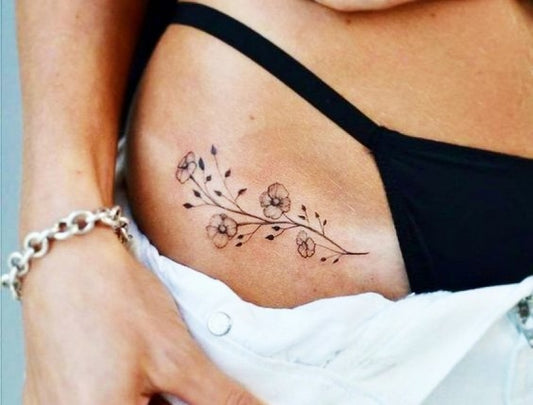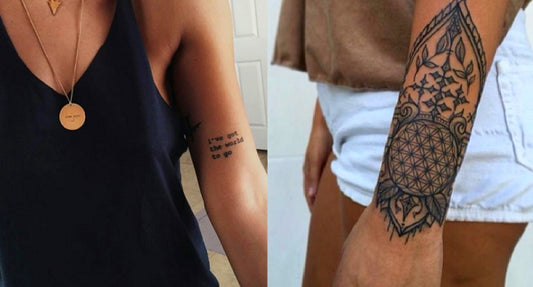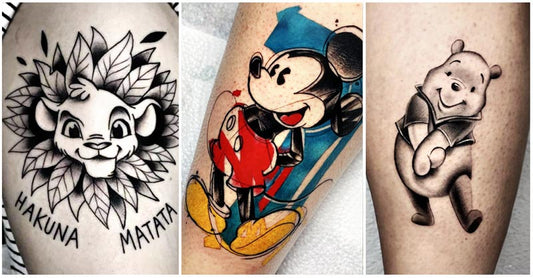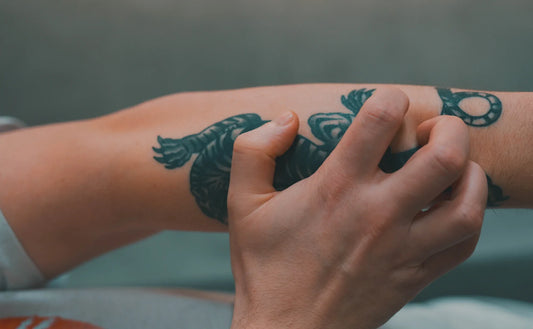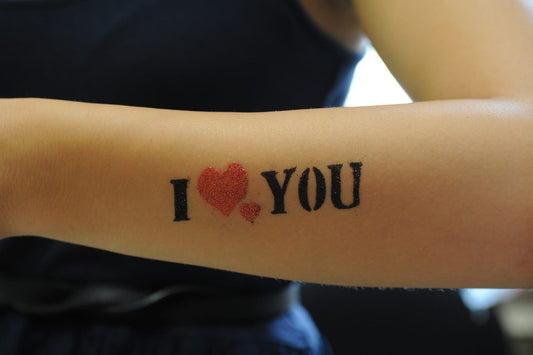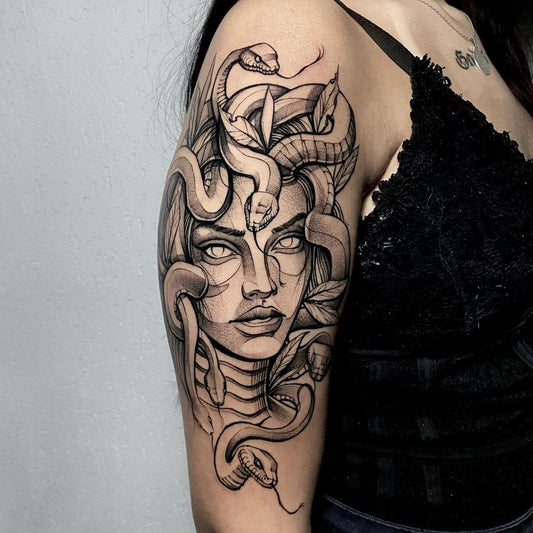
Can Tattooing Be Risky and What Precautions Should Be Taken?
Tattoos are more popular than ever, with different age groups and demographics getting inked for a variety of reasons. But as the demand for tattoos grows, so does the risk of contracting infections or other complications. In this article, we'll explore some of the risks associated with tattooing and what you can do to avoid them.
Reading Guide
Please check the details below:
1. The Origin of Tattoos
Tattoos have been around for centuries, with the first documented cases appearing in Egypt in 2000 BC. Since then, they've been used as a form of expression, as well as a way to mark important events or signify membership in a certain group. But while tattoos may be considered cool or even trendy these days, there are still some risks associated with getting one.
For starters, tattooing involves puncturing the skin with a needle, which can lead to infection. The ink used in tattoos can also be toxic and cause allergic reactions. And finally, there's the risk of contracting diseases like hepatitis C if the needles used are not properly sterilized.
So what can you do to minimize the risks? First, make sure you go to a reputable tattoo artist who uses sterile needles and fresh ink. Second, be sure to clean your new tattoo carefully and follow the aftercare instructions provided by your tattoo artist. And lastly, don't forget to get plenty of rest and keep your immune system strong - that way, you'll be less likely to experience any complications from your new tattoo.

2. How Tattoos Are Done
Tattooing is the process of puncturing the skin and inserting ink into the dermis, or second layer of skin. The first layer of skin, called the epidermis, constantly sheds cells. This makes tattooing a risky proposition because if not done correctly, infections and other complications can occur.
There are some things you can do to minimize the risk of complications from tattooing. First, make sure you go to a reputable artist who uses sterile equipment and fresh ink. Second, be sure to take care of your tattoo according to your artist's instructions. This means keeping the area clean and dry, and applying a healing ointment if recommended.
If you experience any redness, swelling, or other abnormal symptoms after getting a tattoo, be sure to see a doctor right away. Tattooing may be risky, but with proper precautions it can be safe and beautiful way to express yourself.
3. Risks of Getting a Tattoo
There are potential risks associated with getting a tattoo, and it's important to be aware of them before you make the decision to get inked. Infection is one of the most common risks, as the needles used to apply tattoos can introduce bacteria into the skin. Other risks include allergic reactions to the tattoo ink, and development of keloids (raised scars) at the tattoo site.
To help avoid these risks, it's important to choose a reputable tattoo parlor that uses sterile needles and fresh ink, and to follow aftercare instructions carefully. If you experience any redness, swelling, or other problems at the tattoo site, be sure to see a doctor right away.
4. Make Sure You're Ready
You've decided you want a tattoo. That's great! But before you head to the tattoo parlor, there are a few things you need to do to make sure the experience is as safe and smooth as possible.
First, you need to do your research. Make sure you know exactly what kind of tattoo you want, and pick a reputable artist who can do the job well. It's also important to make sure the shop is clean and sterile; otherwise, you could end up with an infection.
Once you've done your research and found a good artist, it's time to think about aftercare. Once your tattoo is done, it's important to keep it clean and dry for the first few days. After that, you'll need to apply lotion regularly to keep the area moisturized.
If you take these precautions, getting a tattoo will be a safe and fun experience!
5. Insist on Safety Precautions
When getting a tattoo, it is important to insist on safety precautions. Make sure the artist is using new needles and sterilized equipment. Also, be sure to ask about the inks that will be used. Some inks can be dangerous, so it is important to know what you are getting before you commit. Finally, make sure the artist follows all aftercare instructions. You will avoid infection and other complications if you do this.
Find a reputable artist
When you are looking for a tattoo artist, make sure to find a reputable one. See if anyone in your family or friends can recommend someone. Once you have a few names, read reviews online to see what other people’s experiences were like. When you visit the shop, pay attention to how clean it is and how professional the staff appears to be. If anything makes you feel uncomfortable, it is probably best to choose another shop.

6. Take Good Care of Your Tattoo
Tattooing can be a risky business. In order to reduce the risks, you can take a few steps. First, make sure you go to a reputable tattoo artist. Check online reviews or ask around for recommendations. Make sure the shop is clean and sterile and that the artist uses fresh needles.
Second, know what you want. Don't get a tattoo on an impulse. Think about it carefully and make sure you are getting a design that you won't regret later.
Third, take care of your tattoo after you get it. Keep the area clean and dry. Apply lotion if it starts to get dry or itch. And if you have any concerns, don't hesitate to contact your tattoo artist or doctor.
That’s why it’s very important to take care of your tattoo properly. Aftercare is essential in order to avoid infections and other complications.
Here are some tips on how to take care of your tattoo:
1. Wash your hands before touching or cleaning your tattoo.
2. Gently wash your tattoo with a mild soap and lukewarm water. For the first week, repeat this 3 times a day.
3. Apply a thin layer of unscented lotion or ointment to keep your tattoo moisturized. Do this 3-5 times a day for the first week.
4. Avoid soaking your tattoo in water for long periods of time, such as taking baths, swimming, or using a hot tub.
5. Avoid exposing your tattoo to sunlight or tanning beds for at least 6 weeks. After that, use sunscreen to protect your tattoo when outdoors.
6. If you have any questions or concerns about your tattoo, contact your tattoo artist or doctor right away.
7. Conclusion
Can tattooing be risky and what precautions should be taken?
Yes, tattooing can be risky. There are a few risks associated with getting a tattoo, such as infection, allergic reaction, and scarring. However, there are a few things you can do to help minimize these risks. First, make sure you choose a reputable tattoo artist who uses sterile equipment. Second, be sure to clean the area around your tattoo before and after you get it done. Finally, listen to your body – if something doesn’t feel right, don’t hesitate to seek medical attention.





